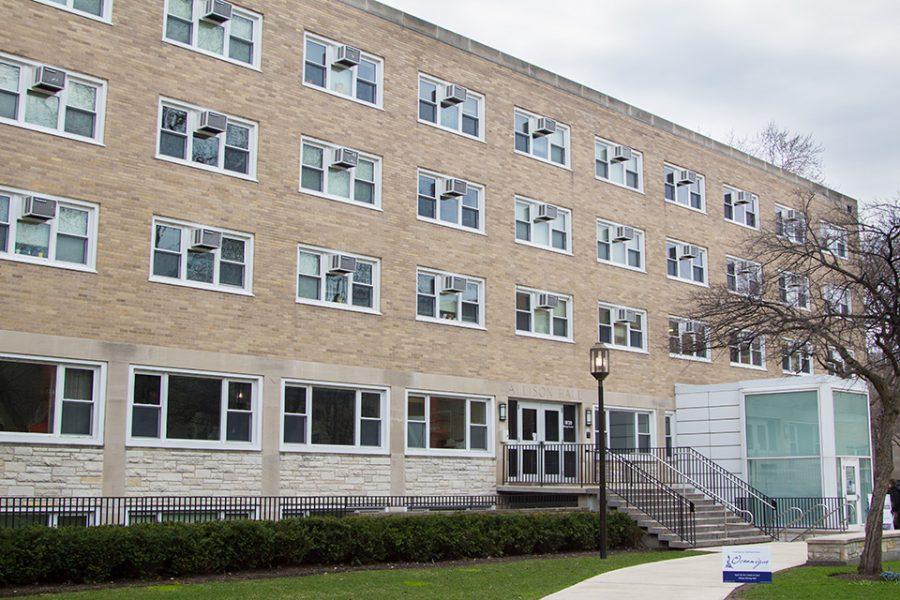Northwestern’s Faculty-in-Residence program set to expand next year
The Faculty-in-Residence program is currently active at Allison Hall and Elder Hall with plans to double in size next academic year. The six-year-old program aims to strengthen the connection between faculty and students outside the classroom.
April 13, 2016
Northwestern’s Faculty-in-Residence program will double in size next academic year as part of the University’s plan to strengthen the connection between faculty and students outside the classroom.
The 6-year-old program designates full-time faculty members to live in apartments built within undergraduate residential facilities, where they help organize community programming. Next year, the program will expand to two newly-created “residential communities,” which are clusters of nearby residential buildings, said Brad Zakarin, the director of Residential Academic Initiatives.
The program is currently active at Elder Hall and Allison Hall. One community will include Shepard Hall and 1838 Chicago, formerly known as the Public Affairs Residential College. The other will comprise Goodrich House, Bobb Hall and McCulloch Hall. The faculty apartments will be located in Shepard and Goodrich, Zakarin said.
He said the program aims to give students a deeper understanding of who NU faculty members are as individuals. However, the learning is not one-sided — he called the intended outcomes of the program “reciprocal humanizing.”
“In many cases students and faculty will connect in the classroom … but what you don’t often get is a sense of what people are doing in their off time, what … they do in their daily lives,” he said. “For faculty, they’re going to get a fuller sense of what student life is like at Northwestern.”
Live-in faculty also hold a programming-focused role in which they organize academic, social and cultural events, Zakarin said.
Communication Prof. Jacob Smith, who is in his third year as Elder’s faculty in residence, said the programming helps open students’ eyes to the broader NU community. In addition to hosting events such as relaxation nights and activities with faculty from various departments, Smith said he has helped introduce students to other student groups and Evanston organizations.
“There’s all kinds of exciting new developments that can come by having more faculty residents around, by just building on our collected wisdom over the past few years to think about what works and what could be new and different,” he said.”
Weinberg sophomore Troy Xu, Allison’s area council representative, said the faculty member who lives there — Psychology Prof. Renee Engeln — organizes popular events for the community, such as “Sunday socials” and dinners in Engeln’s apartment with other invited professors. He said he appreciates the programming, especially classes taught within Allison.
The residential communities are still in an experimental phase, and a committee of faculty, staff and students will continue to meet throughout the spring to plan how to improve the system, Zakarin said. He added that he hopes in the future there will be ways for faculty to be involved even if they do not live in campus housing.
“The long-term future is something that we’re being really intentional about and trying to think what is the ideal role for faculty members to play,” he said.
Email: [email protected]
Twitter: @julie_fishbach


